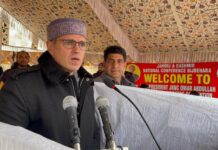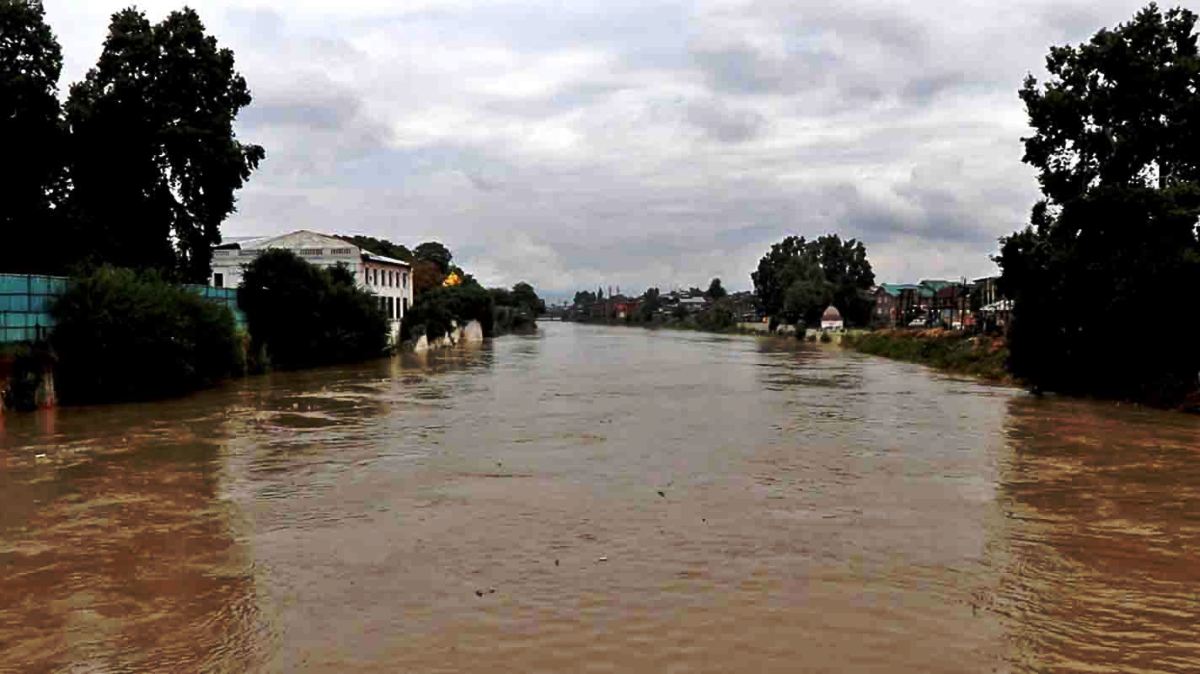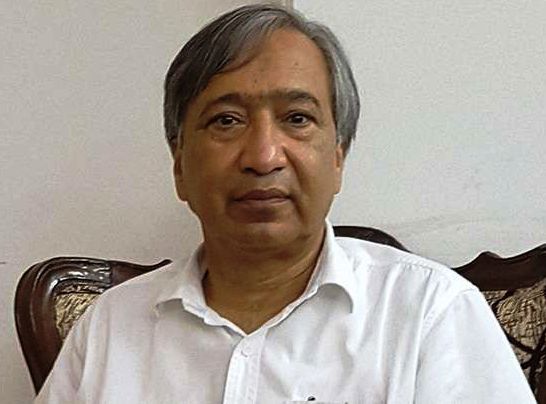SRINAGAR: Home Minister Amit Shah asserted that the bills on Jammu and Kashmir’s reservation will contribute to the series of progressive changes initiated by Prime Minister Narendra Modi. Shah emphasised that these bills aim to provide rights and justice to those who endured injustice, insults, and neglect for seven decades.
Shah stated, “Those who view it merely as a political strategy for garnering votes and delivering eloquent speeches fail to grasp its essence.” As per Shah, respect holds more significance than assistance when promoting the welfare of such individuals.
Addressing the issue of militancy in Jammu and Kashmir since the 1980s, Shah criticised the indifference towards the displacement of generations due to militancy. He said, “Those entrusted with the responsibility to address this concern indulged in leisure abroad. Had they tackled terrorism earnestly without succumbing to vote bank politics, the need for this bill wouldn’t have arisen.” Shah highlighted that 1,57,967 people from approximately 46,631 families were displaced within their own country, necessitating the provision of rights and representation through the bill.
Shah revealed historical displacement figures, stating that 31,779 families were displaced from Pakistan-occupied Kashmir to Jammu and Kashmir in 1947. After the wars of 1965 and 1971, a total of 41,844 families were displaced. “Prime Minister Modi, acknowledging the long-neglected voices of these displaced people, granted them their rights on August 5, 2019,” Shah said.
Expressing satisfaction, Shah noted that the Delimitation Commission has allocated 2 seats for displaced Kashmiri people and 1 seat for those displaced from Pakistan-occupied Kashmir. He lauded the Modi government for providing a legal framework for this system.
The Union Home Minister highlighted the unprecedented preservation measures, stating, “For the first time in the history of Jammu & Kashmir, 9 seats have been reserved for Scheduled Tribes, and seats are also earmarked for Scheduled Castes.” He continued, “Earlier, there were 37 seats in Jammu, now increased to 43, and 46 seats in Kashmir, now 47, with 24 seats reserved for Pakistan-occupied Kashmir.” Shah emphasized, “Previously, there were 107 seats in the Jammu and Kashmir Assembly, now increased to 114, and nominated members rose from 2 to 5.”
Shah linked the changes to a historic bill passed on August 5-6, 2019, under Prime Minister Narendra Modi’s leadership. He noted, “After its passage by Parliament, Article 370 was abolished.” Shah expressed gratitude, saying, “Every oppressed, backward, and displaced Kashmiri will remember the Lok Sabha’s efforts and blessings.”
Responding to opposition queries on the legitimacy of reservation for displaced people, Shah clarified, “This is a bill to provide rights and representation to the displaced people of Kashmir.” He highlighted the importance of giving a voice to displaced Kashmiris in the Assembly and preventing future displacement.
Shah remarked, “When militancy struck and people were forced to flee, we witnessed crocodile tears from many, but Prime Minister Narendra Modi wiped away their tears with genuine empathy.” Describing the pain of those who abandoned their properties, Shah acknowledged, “We cannot imagine the anguish of those who left their homes in Kashmir to save their lives.” He criticised the confiscation of their properties and the forced sale of land at low prices, stating, “Their property was snatched away, and the administration remained silent, taking no steps.”
Shah said, “The government led by Prime Minister Narendra Modi made a new law to provide justice in this matter.” Shah emphasized the retrospective implementation, noting, “By implementing it, people were given back their property.” He detailed the government’s efforts: “About 1.6 lakh people were given domicile certificates. A cash assistance amount of Rs 3250 per person and a maximum of Rs 13,000 per family is given. The government provides 9 kilos of rice, 2 kilos of flour, and 1 kilo of sugar per person every month.” Shah added, “Under the leadership of Prime Minister Narendra Modi, a lump sum amount of Rs 5.5 lakh was provided to people from Pakistan Occupied Kashmir.”
Speaking about the Backward Classes Commission, Shah stated, “The Commission held several rounds of meetings with stakeholders, meeting 198 delegations and 16,000 people in 750 days.” He explained the reform in the Jammu and Kashmir Reservation Act, noting, “This Act existed earlier but was for the weaker sections. This time, Prime Minister Narendra Modi has given them respect by giving them the constitutional name Other Backward Classes.”
Shah presented statistics on the reduction of militancy, stating, “Between 1994 and 2004, a total of 40,164 incidents of terrorism took place, whereas, in the 9 years of the Narendra Modi government, these incidents came down to only 2,197 with a 70 per cent reduction.” He highlighted the decline in civilian and security forces deaths, stone-pelting incidents, organized strikes, and ceasefire violations.
Shah praised the central government’s efforts in ensuring security, stating, “The Central Government has made tireless efforts under the leadership of Prime Minister Narendra Modi to ensure the security of the people of Jammu and Kashmir and improve their quality of life.” He detailed the Zero Terror Plan and area domination plan, noting, “Earlier only terrorists were killed, but now we have destroyed its entire ecosystem.” Shah provided details on cases registered under terror finance and developments in cinema and entertainment post Article 370 abolition.
Reflecting on the changes post-Article 370 removal, Shah stated, “Today, every festival is celebrated with joy and happiness at Lal Chowk, and people from every community participate in it. The spirit of the Constitution has now been taken to the grassroots level there.” He concluded, “All these changes have been made only by the Narendra Modi government after the removal of Article 370. Terrorism has reduced in Kashmir, creating a good atmosphere and fostering significant development.”
Shah remarked, “Jammu and Kashmir had to endure for years due to two significant errors made by Pandit Jawaharlal Nehru during his term as Prime Minister.” He identified the first error as the premature ceasefire during a victorious military advance, resulting in the creation of Pakistan-occupied Kashmir. Shah asserted, “If the ceasefire had been delayed by 3 days, Pakistan-occupied Kashmir would be a part of India today.” The second error, according to Shah, was taking the issue to the United Nations hastily under Article 35 instead of Article 51 of the UN Charter. He noted, “Even when the matter was sent to the UN, the decision was taken very hastily.”
This statement of Shah created an uproar in the House with opposition leaders accusing the Home Minister of distorting the history and levelling wrong allegations against Pt Nehru. Amid noise from the opposition desks, Shah continued to explain his statement adding that he was making the statement with full responsibility.
“Former Prime Minister late Jawaharlal Nehru had written that it was his mistake, but it was not just a mistake but a blunder.” He emphasised the severe consequences, stating, “The country lost a big chunk of land; it was a blunder,” Shah said.
Discussing development initiatives, Shah mentioned that projects initiated by Prime Minister Narendra Modi in 2014, cost Rs 80,000 crore for Jammu and Kashmir’s development. He detailed completed projects, including hydro projects, solar energy initiatives, transmission lines, and railway expansions. Shah discussed advancements in irrigation, flood management, and the completion of the Shahpur Kandi Dam project.
Shah provided insights into various sectors, such as road construction, agriculture, tourism, and healthcare. He highlighted the government’s commitment to covering the entire treatment cost up to Rs 5 lakh for all people in Jammu and Kashmir, surpassing the national scheme specifically for the poor.
Reflecting on the increased tourist influx, Shah expressed confidence in breaking records under the government led by Prime Minister Narendra Modi. He discussed policies framed for homestays, films, houseboats, and industrial development in Jammu and Kashmir. Shah concluded by presenting the current bill as an effort to empower those who were deprived for years and urged cooperation for its passage, emphasising its purpose.















